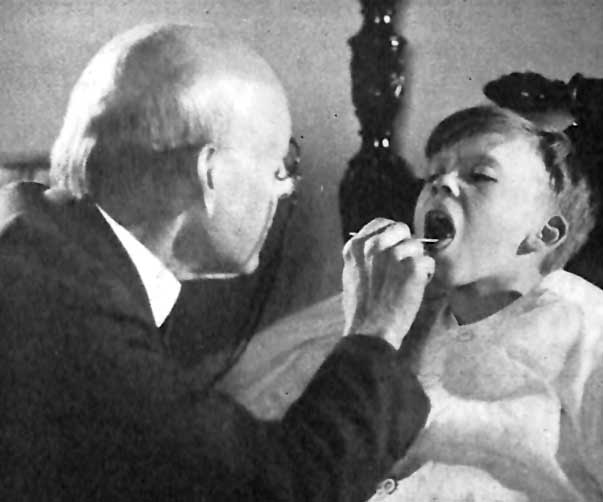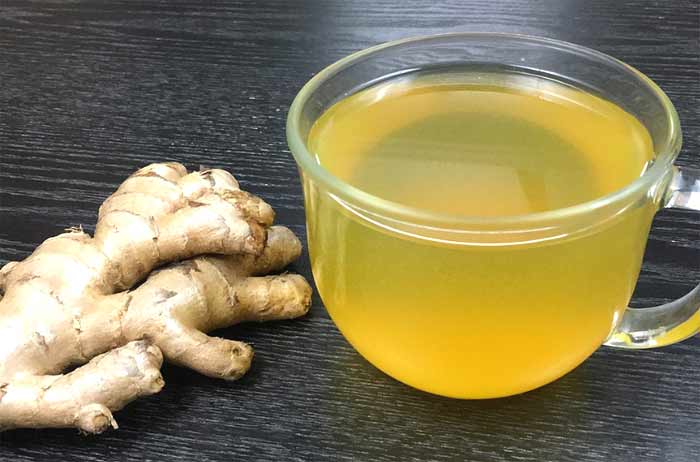Sore throat herbs
Treating sore throat with herbs and home remedies

Sore throat can take many forms including a raw burning sensation, swollen glands, laryngitis, hoarseness, and light to severe pain. Accompanying symptoms may include fever, earache, and runny nose.
Strep throat is very painful and comes on suddenly. A sore throat due to a cold or flu comes on more slowly. Tonsillitis and strep throat are more serious infections that require a visit to your healthcare professional.
Natural remedies for sore throat
Treat sore throat with medicinal teas. All herbal teas can help heal and protect the throat. The warm liquid and vapors can do wonders.
Herbal gargles, compresses, and lozenges are also excellent choices for sore throat. All of these products can be easily made at home. Learn how to make your own gargles, compresses, and more.
Lemon, honey, and garlic also help sore throat pain. Lemon juice and honey is a well known remedy for soothing sore throat pain and adding garlic makes it even better.
It also helps to drink lots of citrus juice especially orange, pineapple, and grapefruit juice. Horseradish and ginger are also known to help sore throats.
Herbal gargles for sore throat
Effective gargles include black tea with a pinch of cayenne, sea salt dissolved in water, yellowroot and myrrh solutions, or vinegar and water.
Herbs can really help! Try a ginseng and licorice tonic, echinacea extract, or white willow bark tea.
Other herbs to try include sage, thyme, plantain, elderflower, catnip, cleavers, agrimony, rosemary, turmeric, mullein, and chamomile.

Herbal compress for sore throat
Sometimes a warm ginger or parsley leaf compress can bring relief.
Herbal lozenges for the throat
Zinc, wild cherry, slippery elm, black walnut, and marshmallow lozenges are available at most health food stores and help to bring speedy recovery. Lozenges can also be made at home.
Herbal steams may also help.
Eucalyptus and tea tree oil steams can also help. A warm steam bath or sauna is an excellent treatment for sore throat and congestion.
When steaming is impractical, try inhaling lavender essential oil applied to a warm, wet cloth.
Vapor rubs can be very soothing and healing.
Mix a teaspoon of olive oil with a few drops of eucalyptus essential oil. Gently massage into throat and upper chest area. Cover with a warm, dry cloth for best results.
Try sticking the tongue out as far at it will go.
Hold for 30 seconds. Relax and repeat three times to increase blood supply. This speeds healing. Never whisper when suffering from a sore throat or laryngitis – it is very abrasive.
When suffering with a sore throat avoid dairy, sugar, fried foods, and fatty foods.
Also stay away from smoke and be sure to get plenty of rest. Try changing your toothbrush more often if sore throats reoccur on a regular basis.
Are allergies causing your sore throat?
Many people wake up every morning with a sore throat that improves as the day goes on. This is usually due to allergies and should be treated as such. It could be pet dander, reaction to bedding, or mold in the air.
A child that is constantly complaining of sore throat and ear pain may have an allergy to milk. Try limiting dairy products or switching to soy or almond milk. Read more about treating allergies with home remedies.

Science, sore throat, and herbs
Recent studies show that several herbs are useful in the treatment of strep throat (streptococcal pharyngitis). Top herbs include licorice, barberry, thyme, oregano, slippery elm, sage, geranium, ginger, clove, and echinacea.
These herbs contain antimicrobial properties and high levels of flavonoids, alkaloids, terpenoids, tannins, and steroids that work to kill bacteria and heal tissues. They are best taken in tea form.
*Sore throat may indicate a serious condition. See your healthcare professional if sore throat pain lasts for more than two days. If you have a fever of 101 degrees or higher, difficulty swallowing, swollen glands in your neck, white patches on your tonsils, or reddish, sandpaper like rash on your body seek professional help.
Echinacea, cloves, and other herbs can make the throat feel numb. This is not dangerous unless patient complains of difficulty breathing or smothering. If so, call 911 or seek emergency care.
Immunity building herbs should be rotated. None are recommended for constant long term use. Always consult with a healthcare professional before taking any herbal remedy especially if you are on prescription medications, pregnant, or nursing.
Sources:
https://www.ncbi.nlm.nih.gov/pmc/articles/PMC6783935/
Blessings to you and yours!
Thanks so much for reading my blog. Jan.

*Note - the information on this website has not been evaluated by the Food and Drug Administration.
© 2005-2024 website design and content by Janice Boling